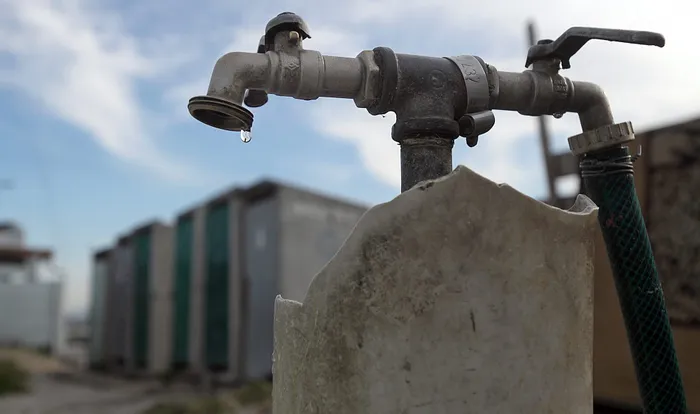City could lose R300m in the 6kl free-water court matter

The legal dispute over the free 6kl of water between the eThekwini Municipality and residents continues. Picture: David Ritchie
THE eThekwini Municipality is not backing down from the opportunity to potentially earn approximately R300 million in revenue from backdated water bills it handed to some ratepayers since the end of last year.
It emerged in court documents that 50 000 families across Durban have enjoyed free six kilolitres of water per month, for a length of time.
That was until the municipality eventually realised its lax handling of the parameters of a free water policy it instituted previously for the benefit of indigent households, and began issuing backdated bills to the affected families.
The bills were capped to a period of three years and the 50 000 affected homes were billed around R6 000 as outstanding dues.
Details of the potential income boost were indicated in the municipality’s “heads of argument” which was filed last week in the court action brought by the eThekwini Ratepayers Protest Movement (ERPM), opposing the backdated water bills.
ERPM’s action, launched at the Durban High Court in June, was on behalf of 350 of their members residing in different parts of Durban and affected by the municipality’s backdated billing decision.
The organisation claimed the municipality’s stance was “illegal”, due to their own poor administration and failure to consistently read water meters at residents’ homes.

ERPM accused the city of flouting its own Municipal Systems Act, in particular the credit control and debt collection policy, with the course of action it had taken.
The rights body asked the court to order the municipality to shelve the policy.
In their heads of argument, the municipality reiterated the collection was in line with their Constitutional imperative of “remaining sustainable”, which would be adversely affected if they were interdicted.
“This is not a matter where the municipality has a discretion. The court is dealing with persons who have consumed water without paying, even though they were not so entitled,” read the document.
It challenged the jurisdiction of the ERPM in the matter, and argued that according to the Systems Act, reference was made to a “person” as someone who is liable for payments to the municipality.
“The first applicant is not such a person and is accordingly non-suited to the proceedings”.
The city disputed that the ERPM’s action was of public interest, instead the municipality maintains that the organisation was only serving the interests of its members.
It questioned why the ERPM did not clearly indicate the relief it sought and that their members did not raise disputes over the backdated bills within the stipulated time, which the organisation challenged in their submissions.
Because of an oversight on their side and prescription, the municipality is permitted to recover dues for three years only.
“Had the municipality timeously and correctly adjusted the threshold over that period, the applicants and others would not have had the benefit of such free water for a number of years
“In any event, these proceedings are not about reviewing the threshold,” the municipality indicated.
The municipality said the applicants made various allegations “without any factual evidence”, and skipped other steps of remedy on this issue but chose to approach the courts instead.
The entity dismissed the assertion that ERPM’s members couldn’t afford the backdated bills as many have already paid in full and many committed to a monthly payment plan of R180.
With ERPM mentioning in its court papers that in certain quarters and political parties made calls for a 100% write off of the bills, the city viewed it as “simply politicking in order to secure votes, they are fully aware that this is not possible in terms of the law.
“Yet they still choose to sensationalise this matter for political points and to mislead innocent residents.
“Therefore, the application is an abuse and must be dismissed,” the municipality concluded.
In response, Sandile Khoza, director at law firm Norton Rose Fulbright South, representing ERPM said: At the heart of this court case is the important issue of access to potable water, a critical resource for the ratepayers of the eThekwini Municipality.
“We can only hope and trust that the court's decision will help resolve the ongoing dispute between the ratepayers and the municipality over the back charges for subsidised water – bringing much-needed clarity and relief to those affected by this situation.
“No one should have to live in fear of losing access to such a critical resource."
SUNDAY TRIBUNE